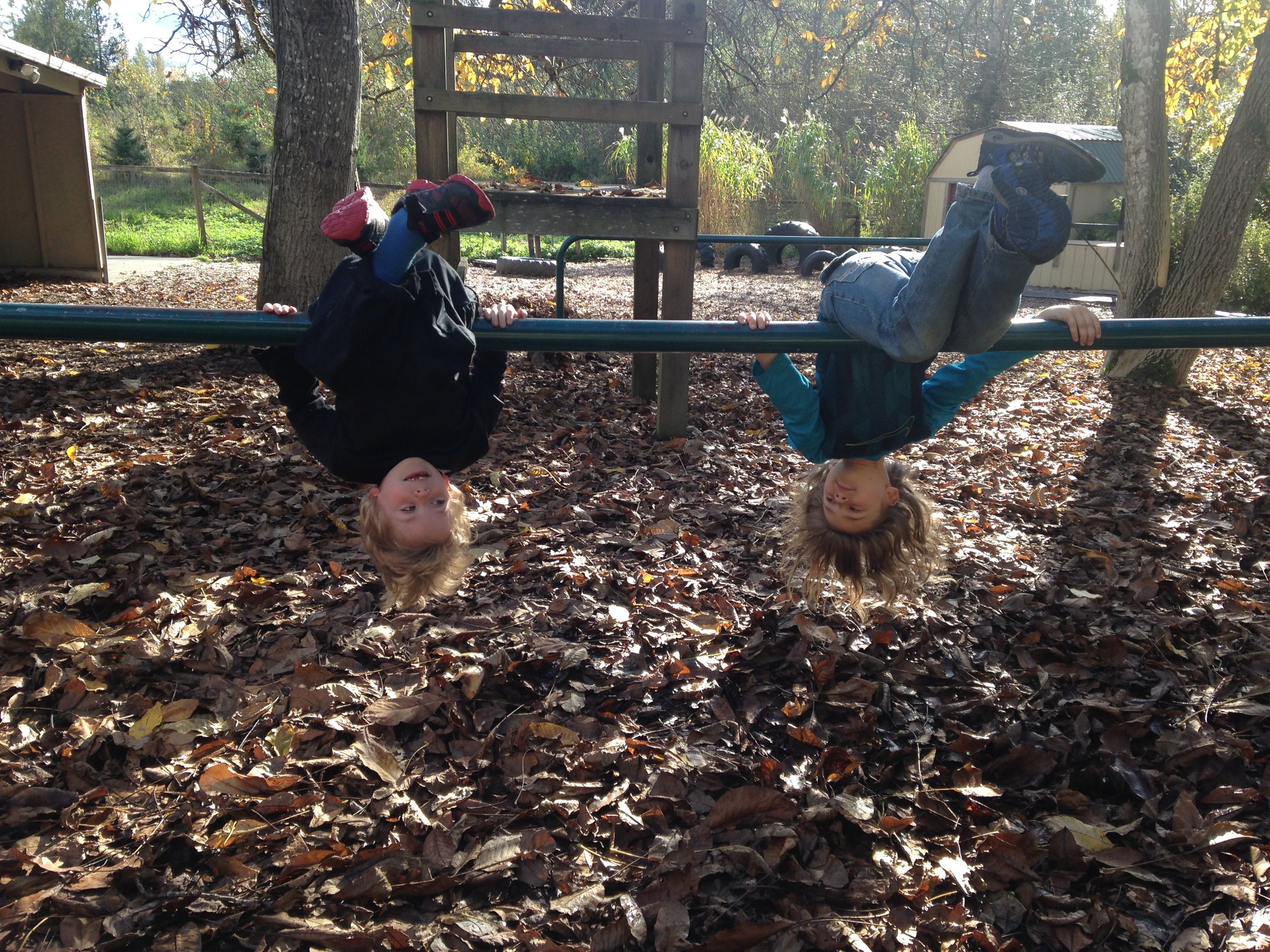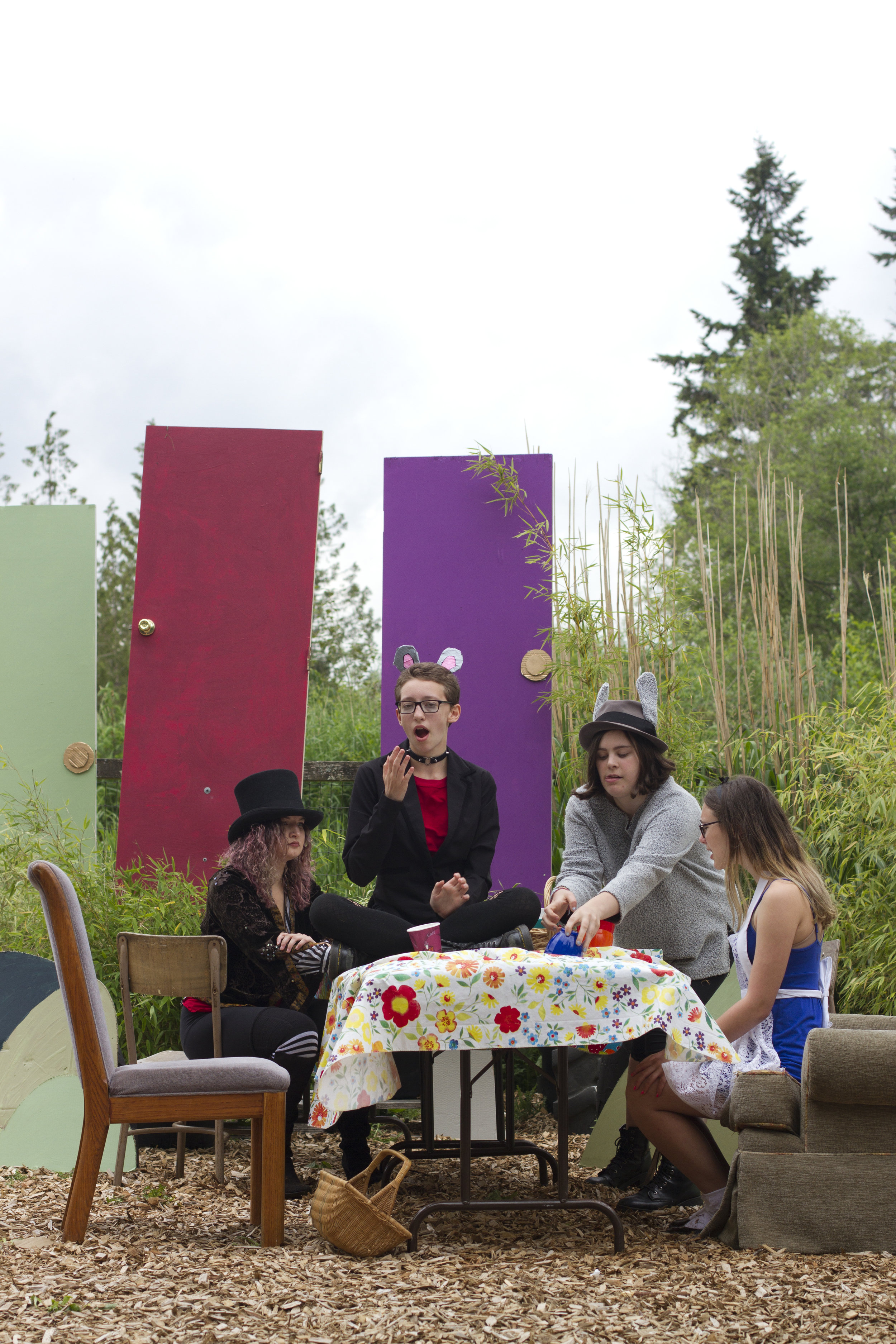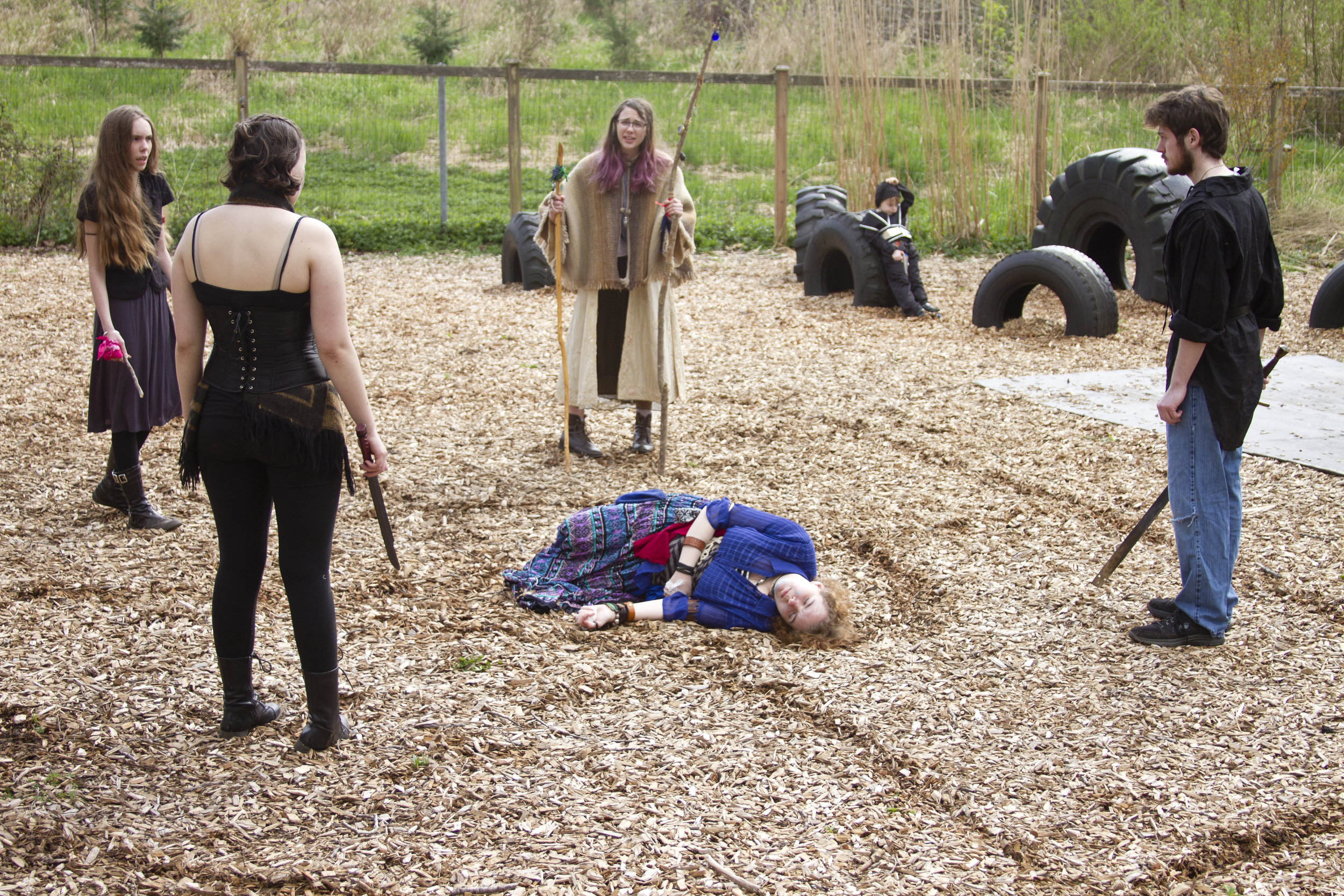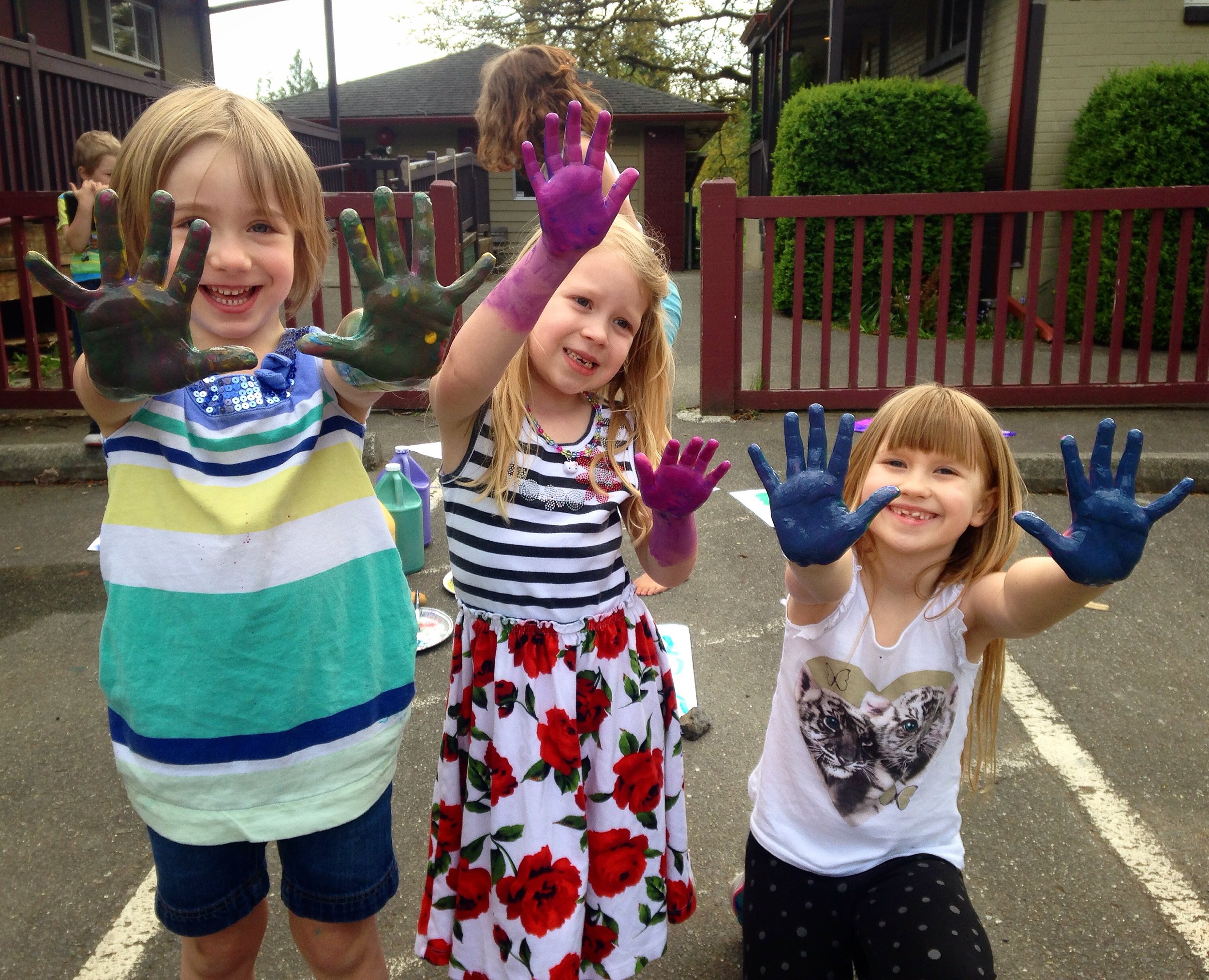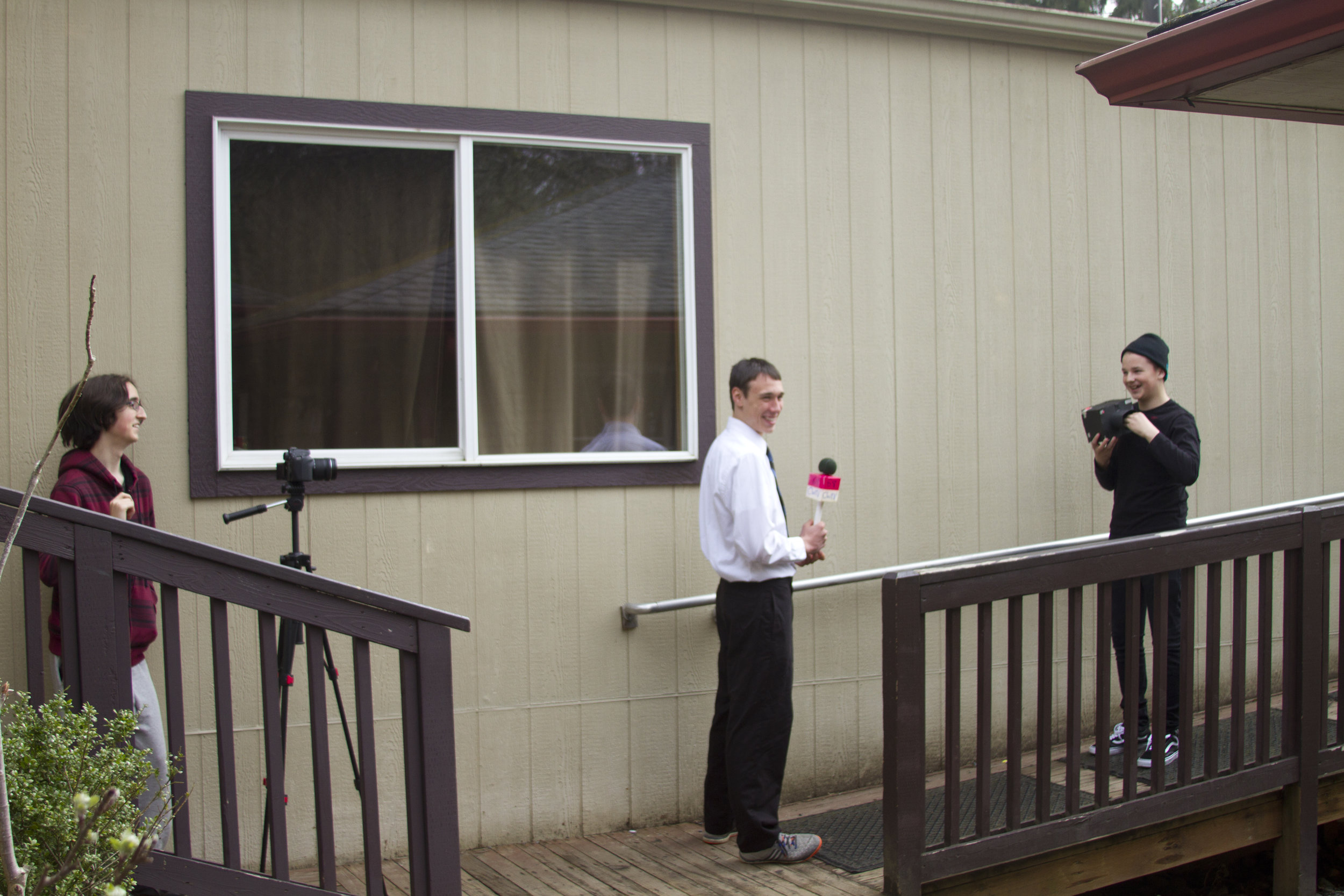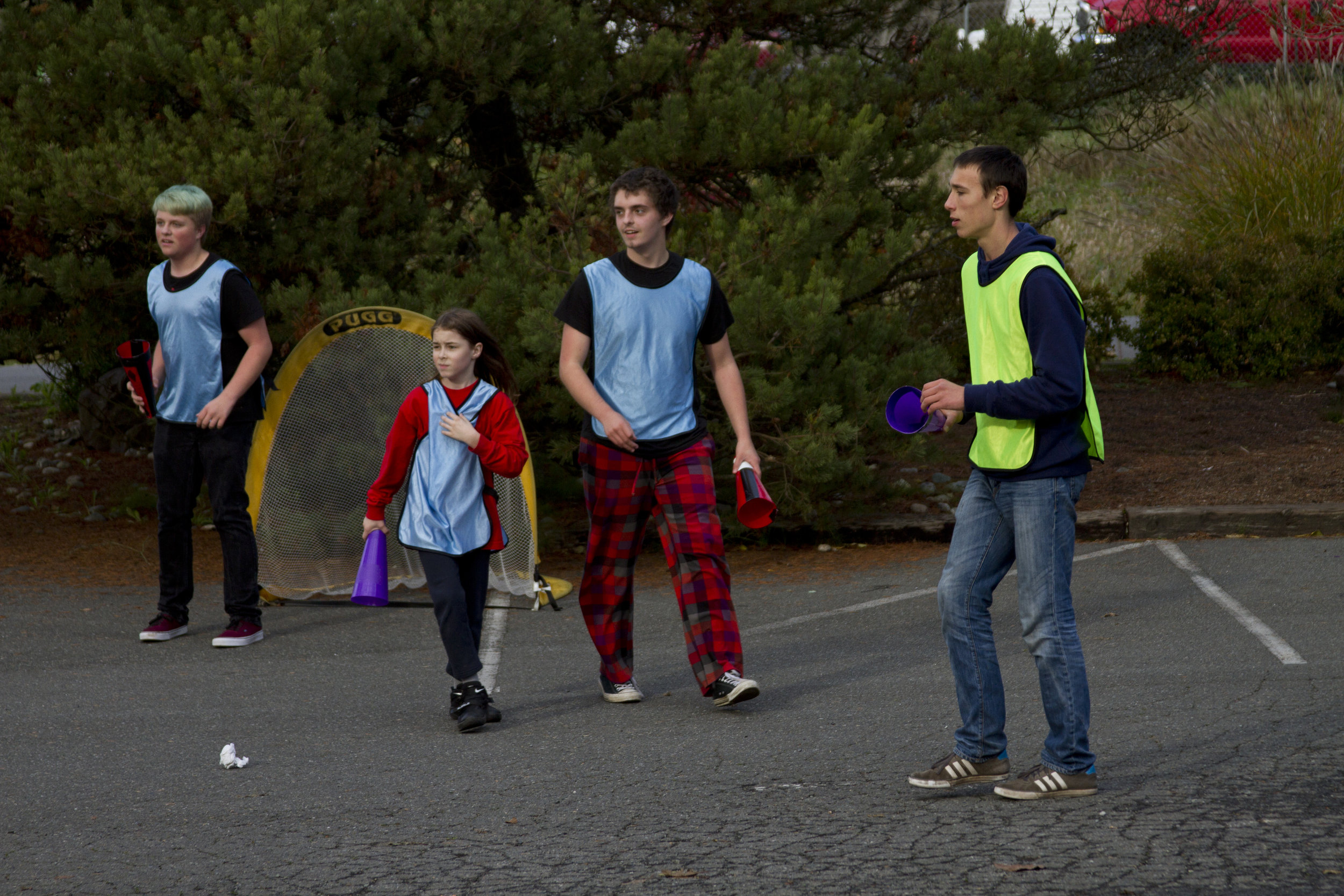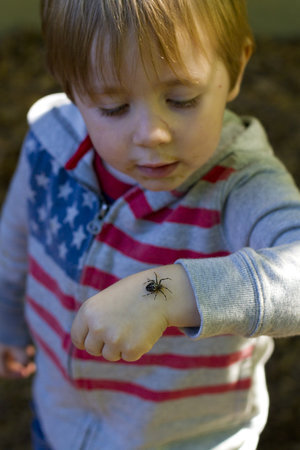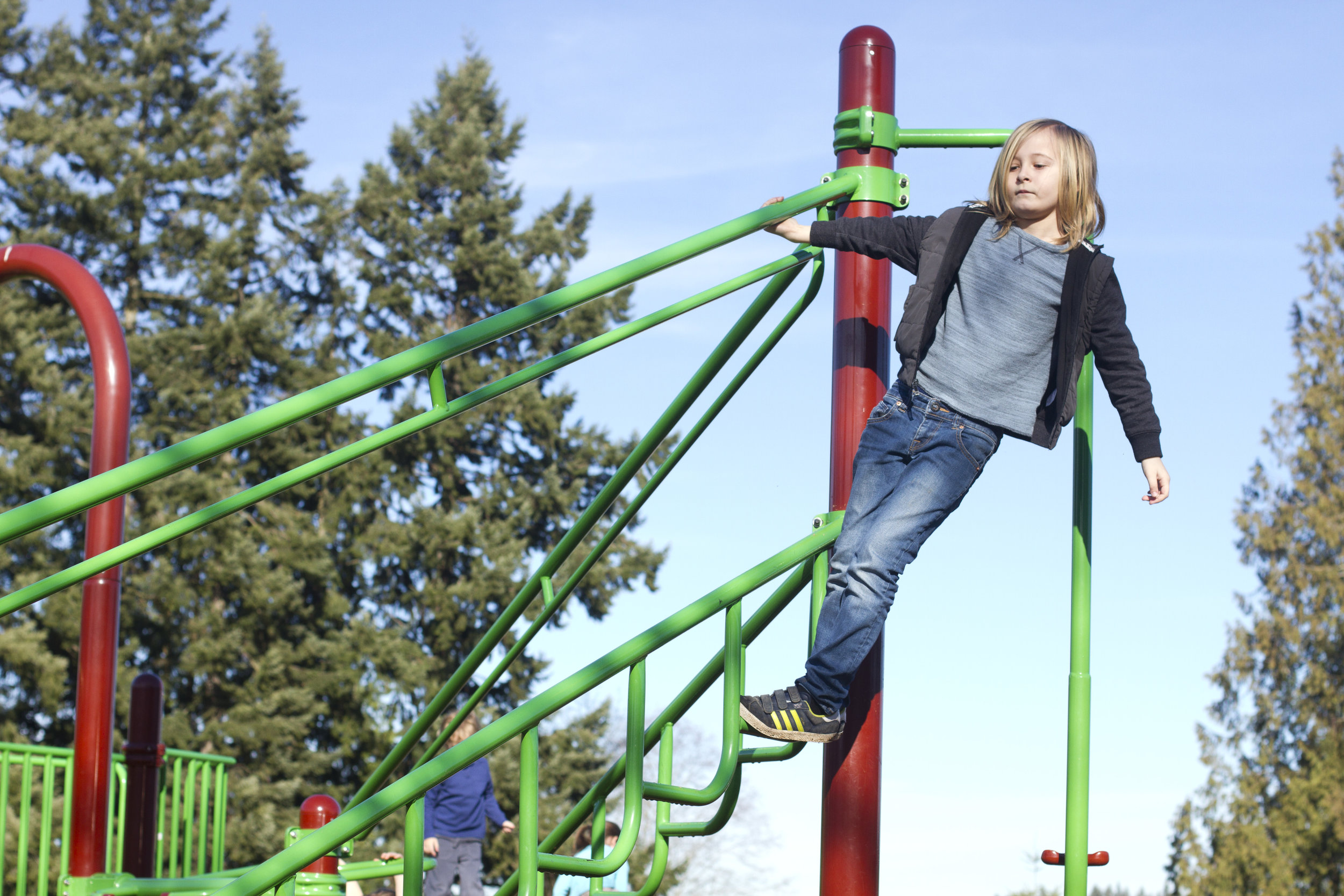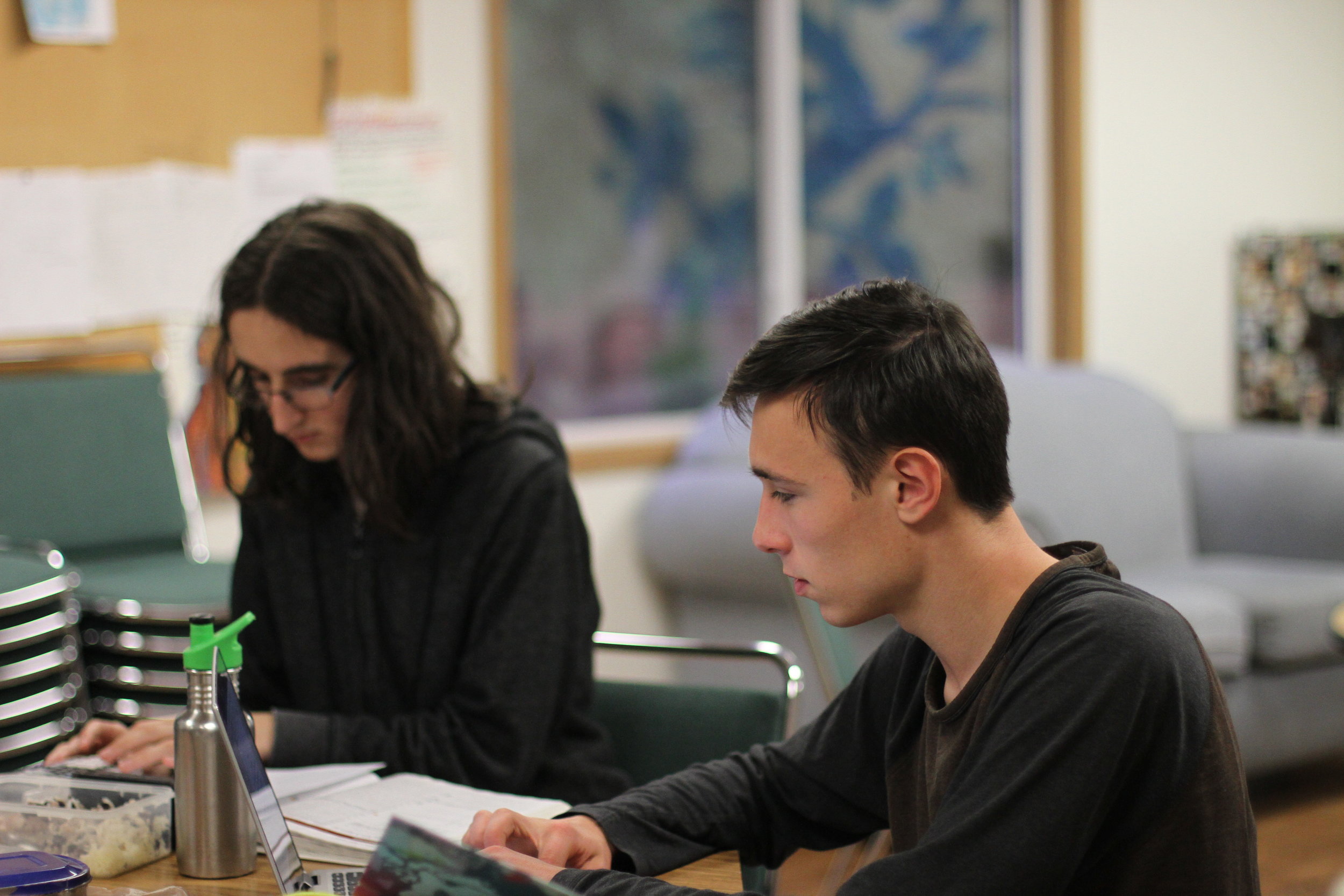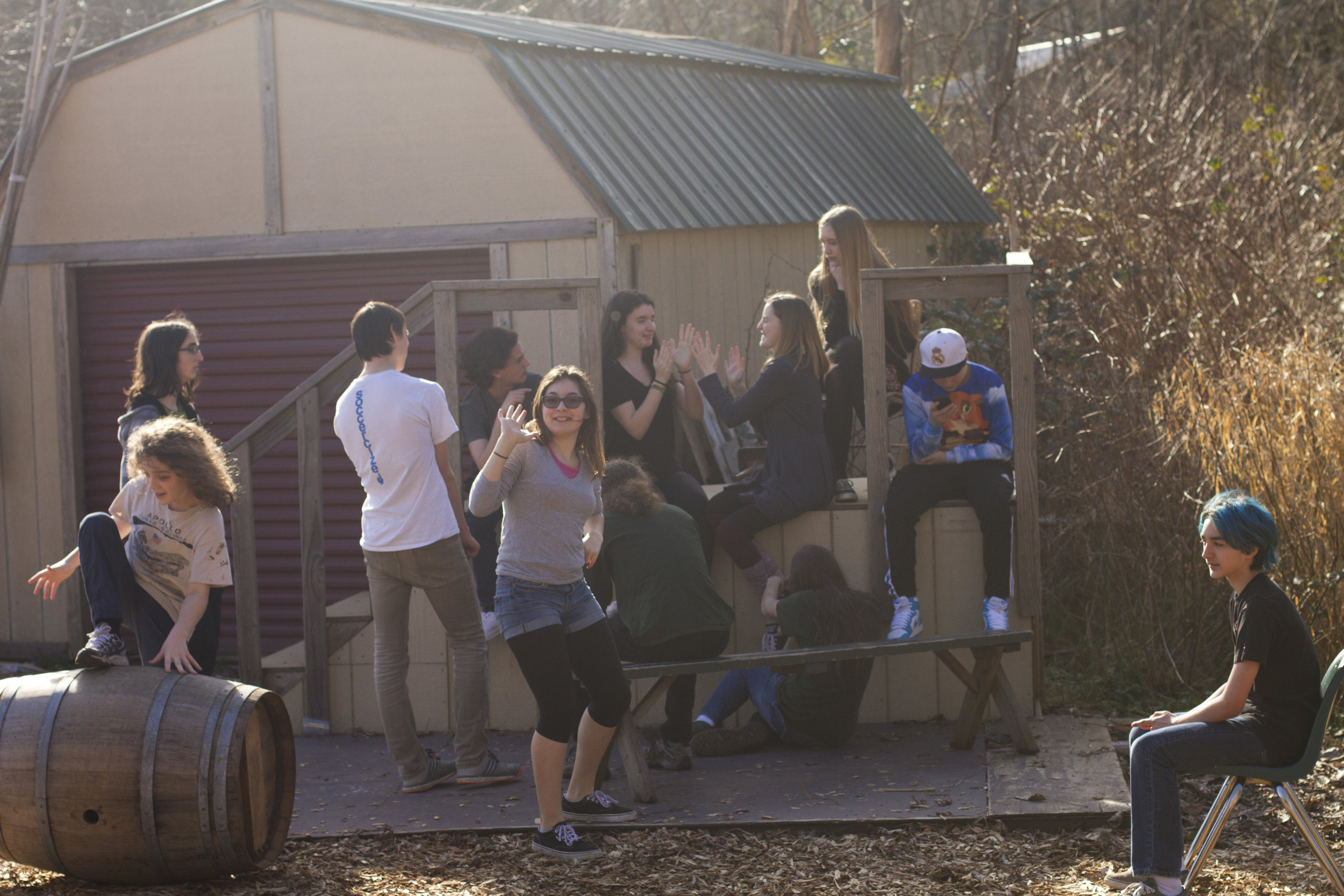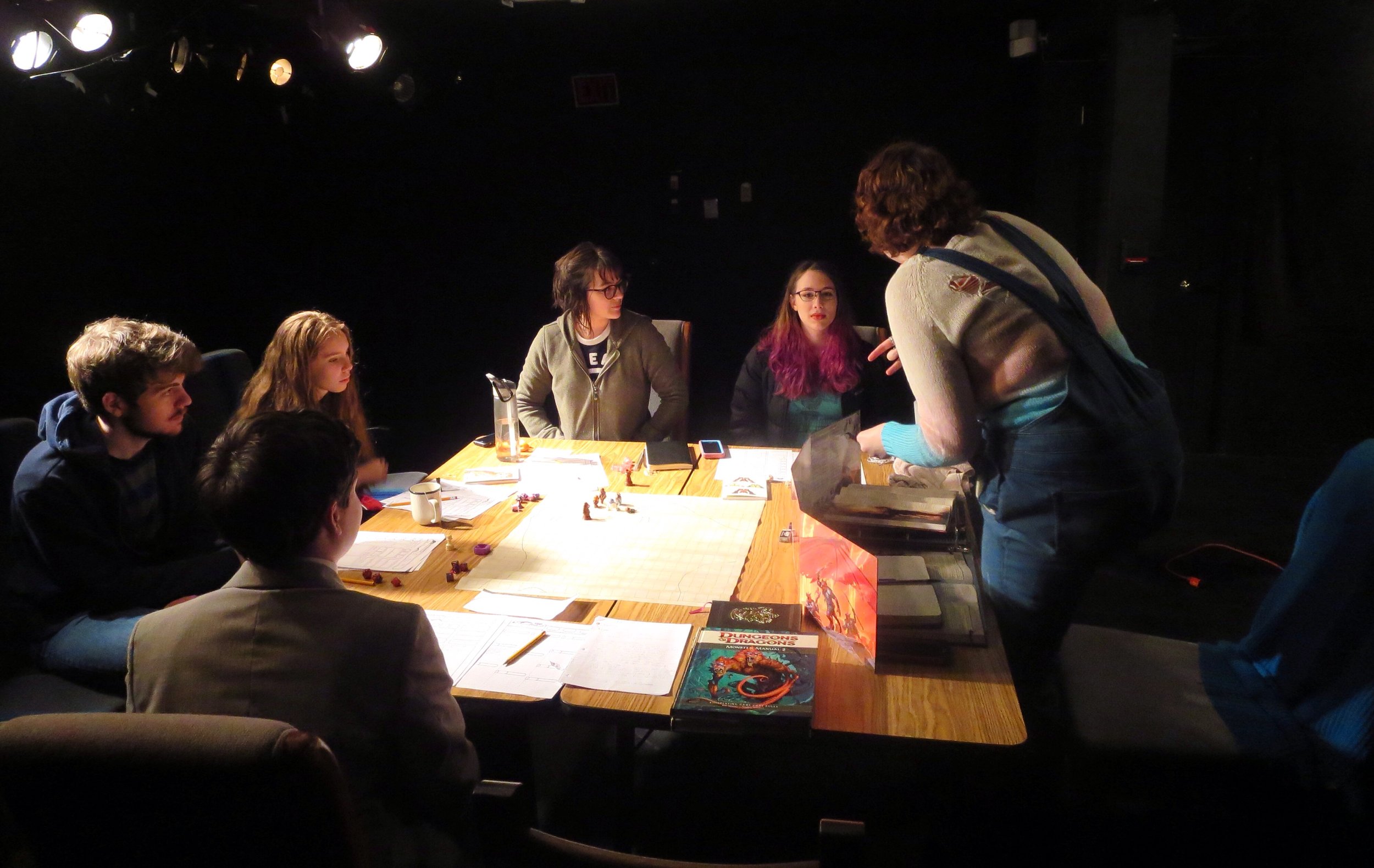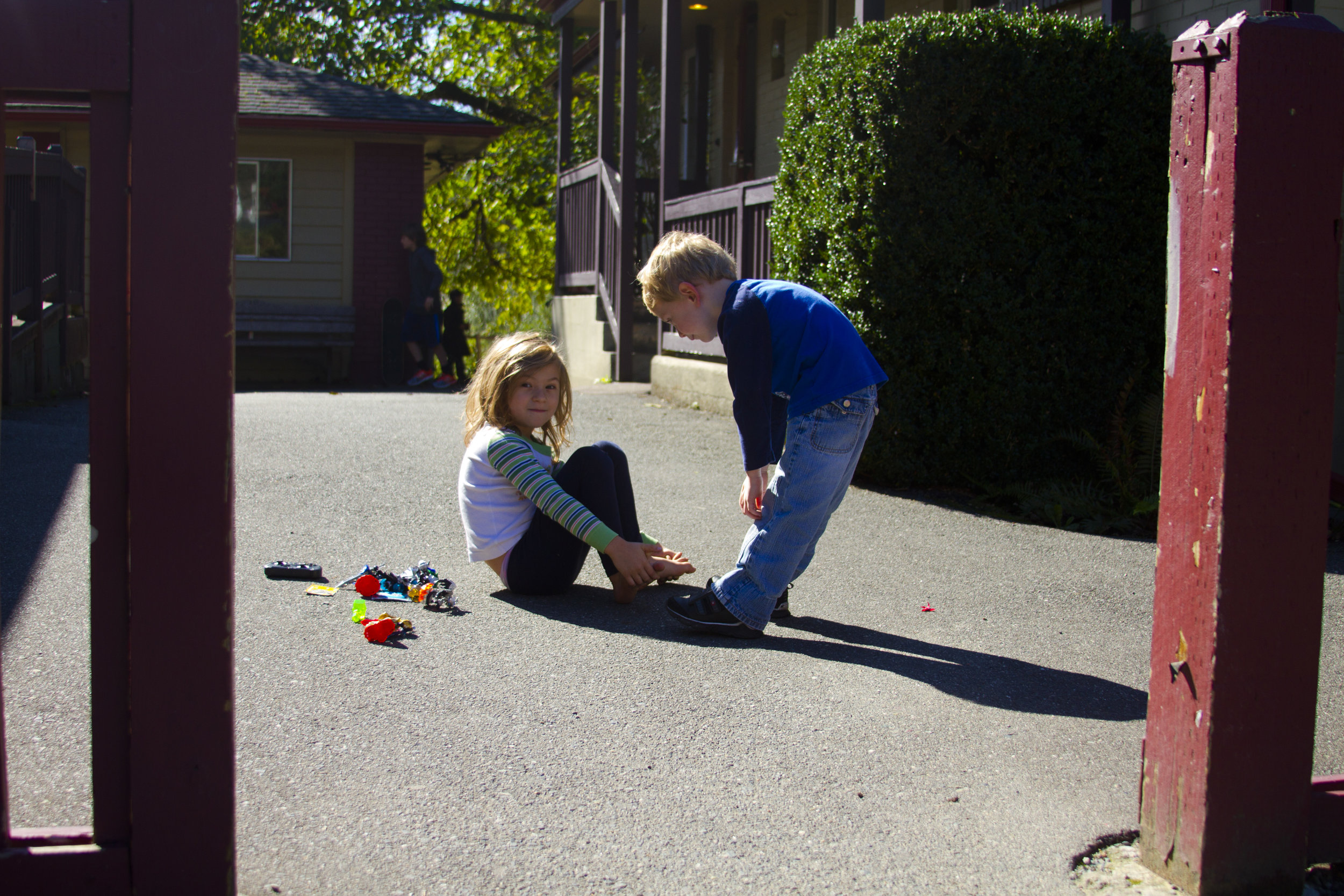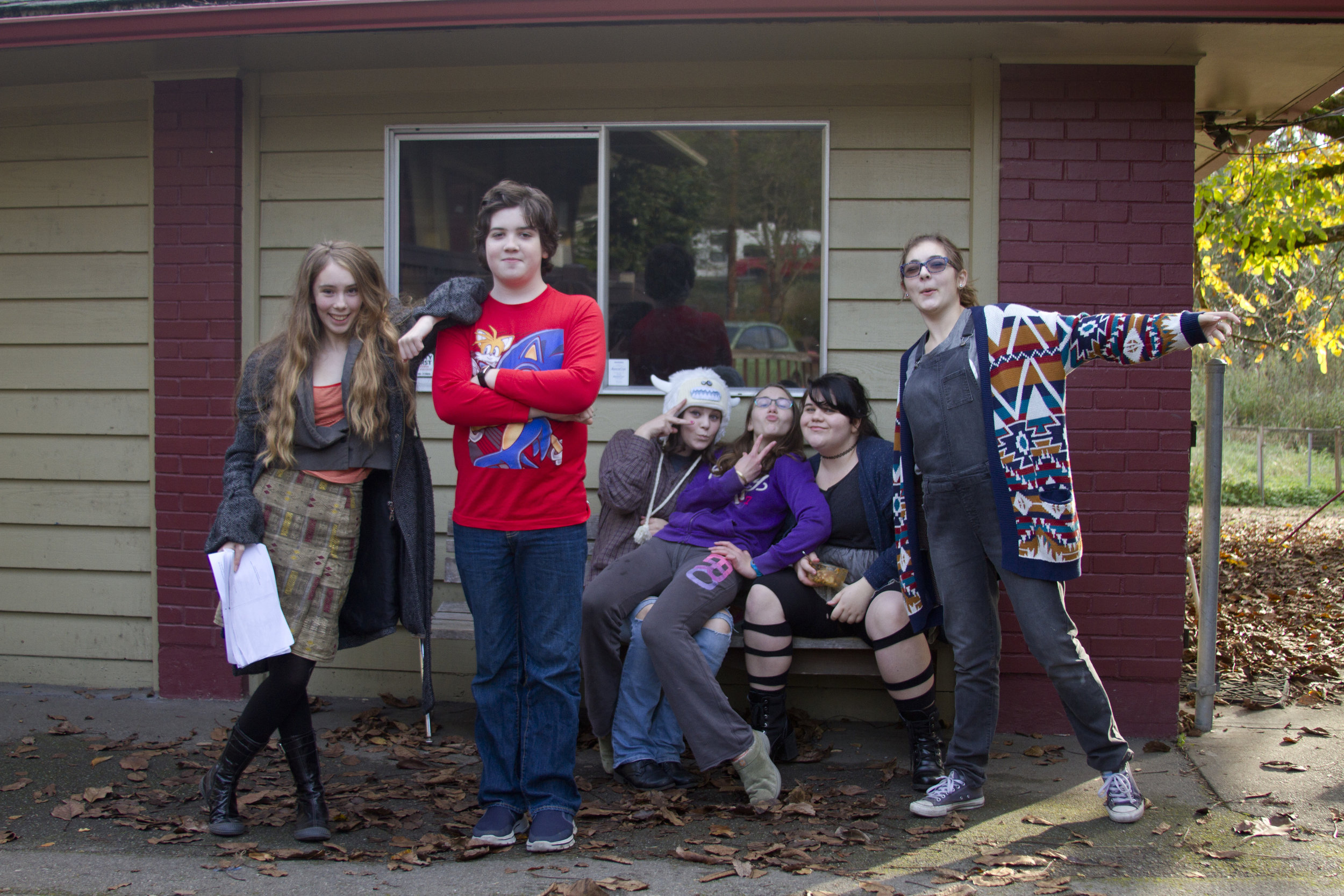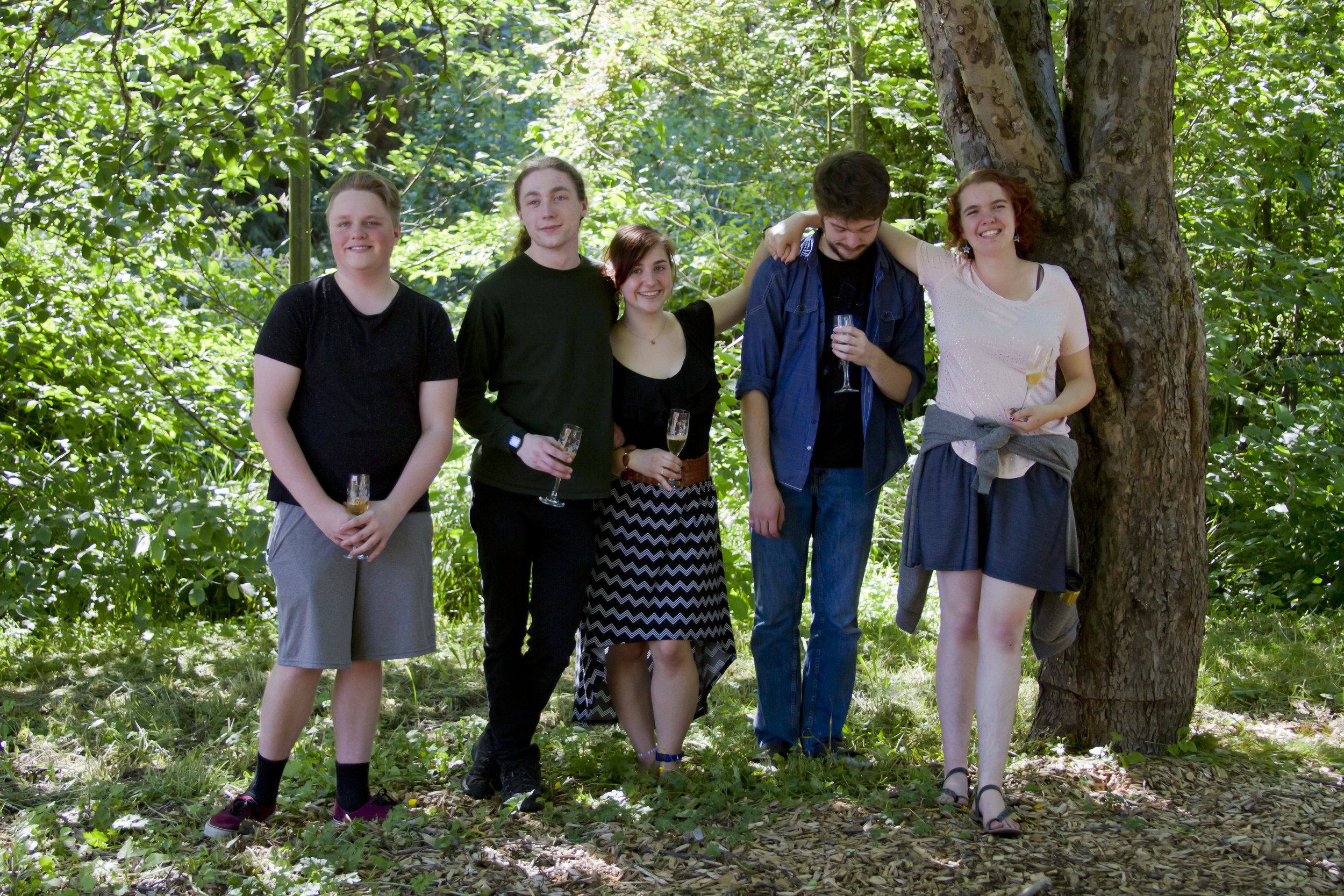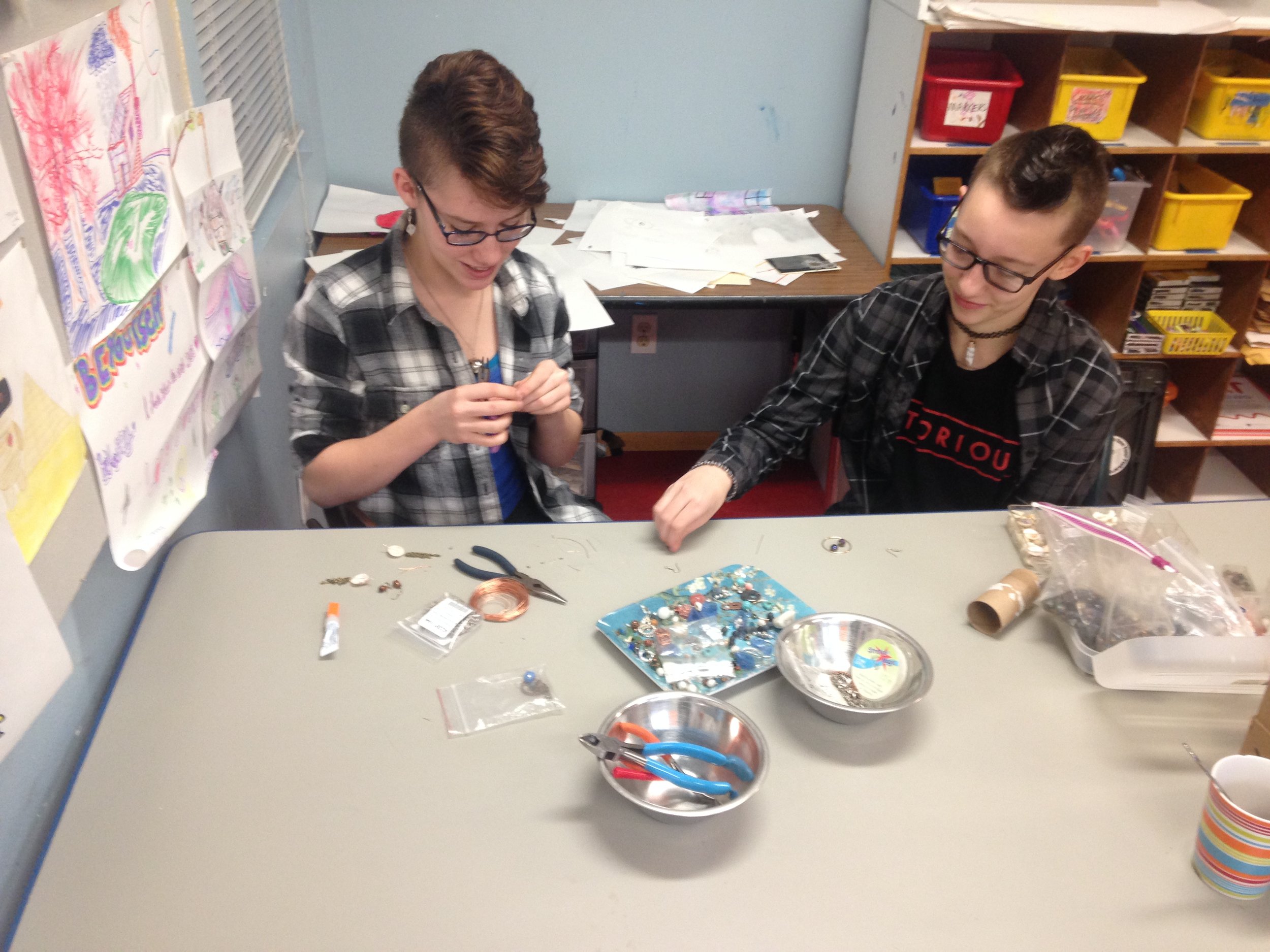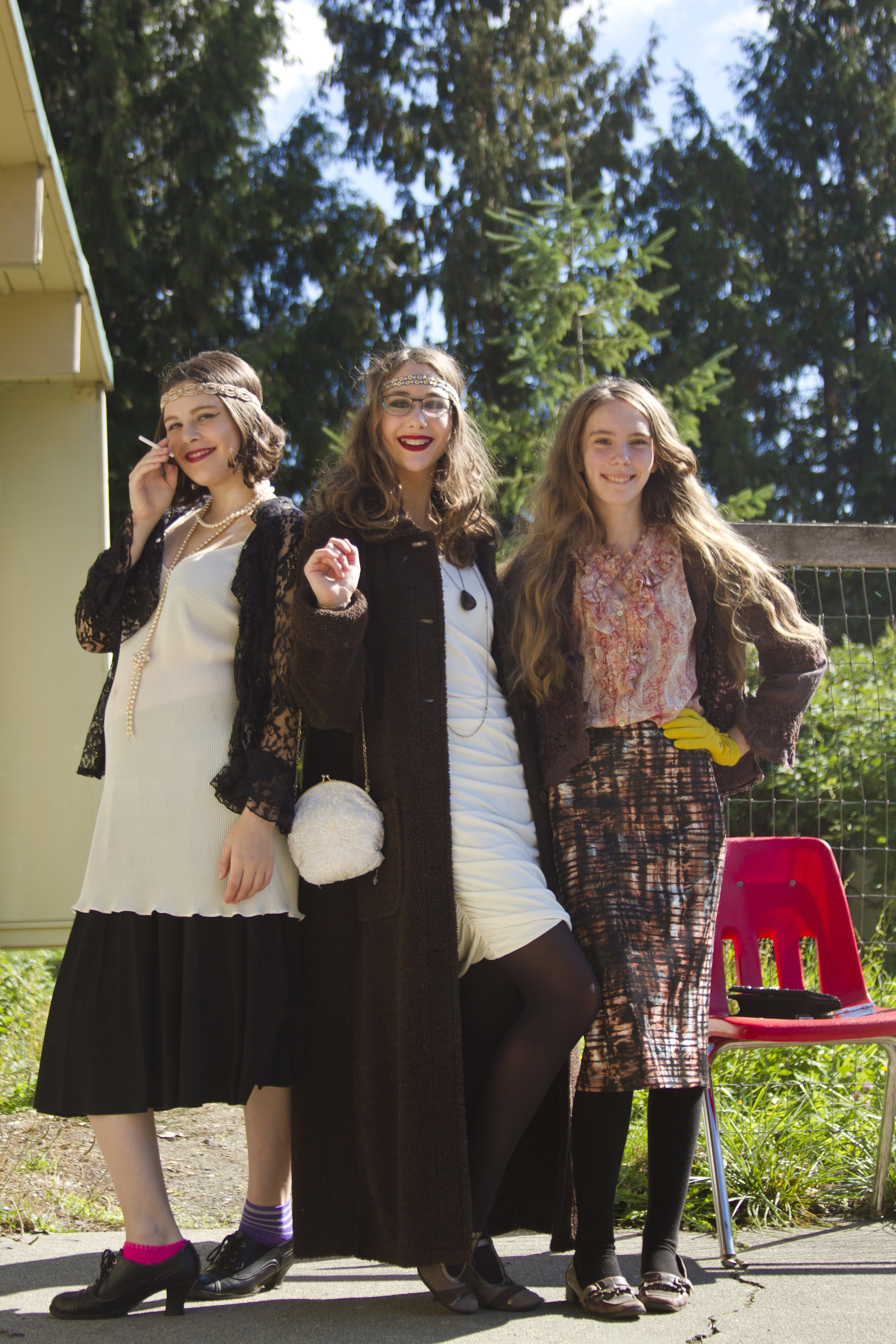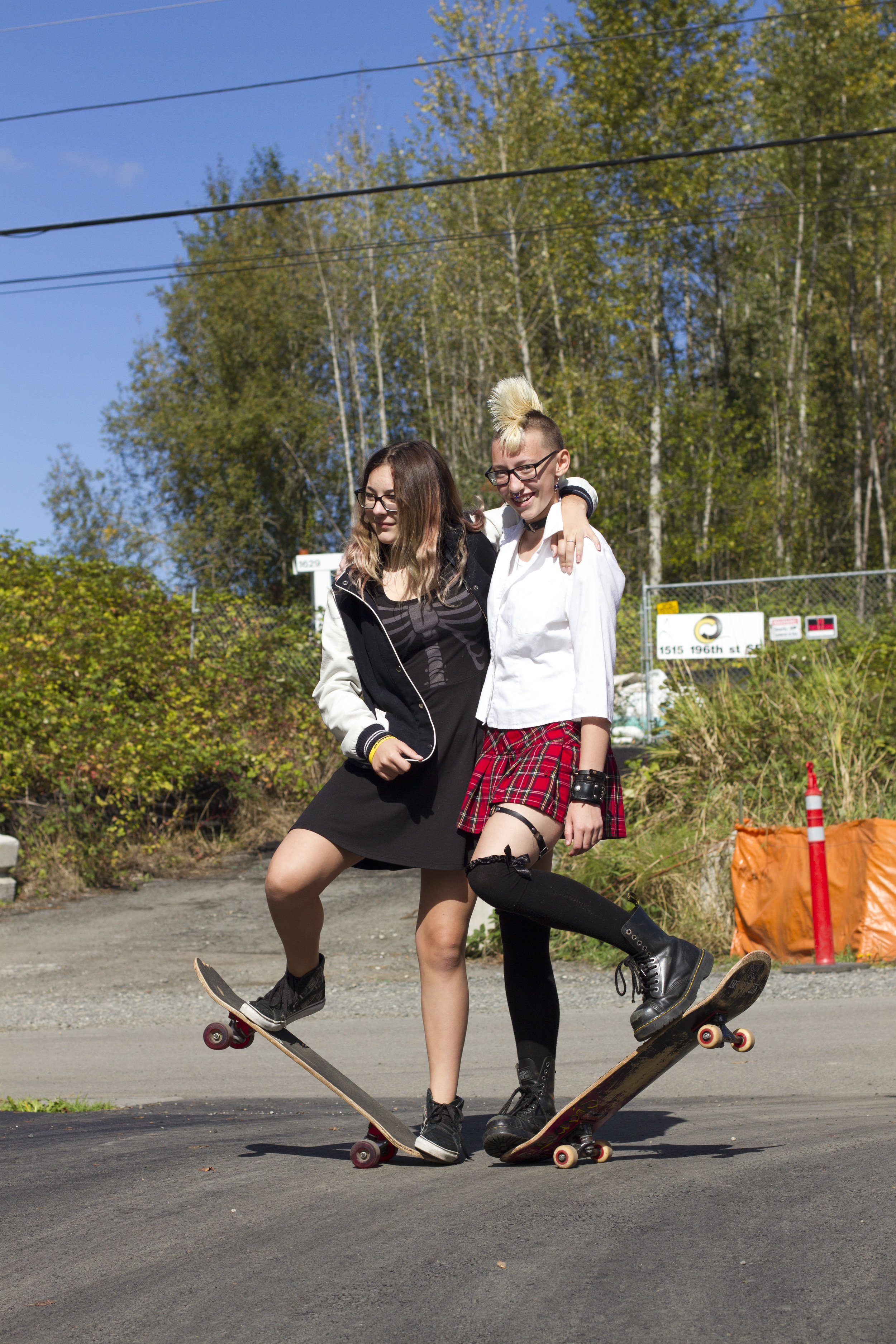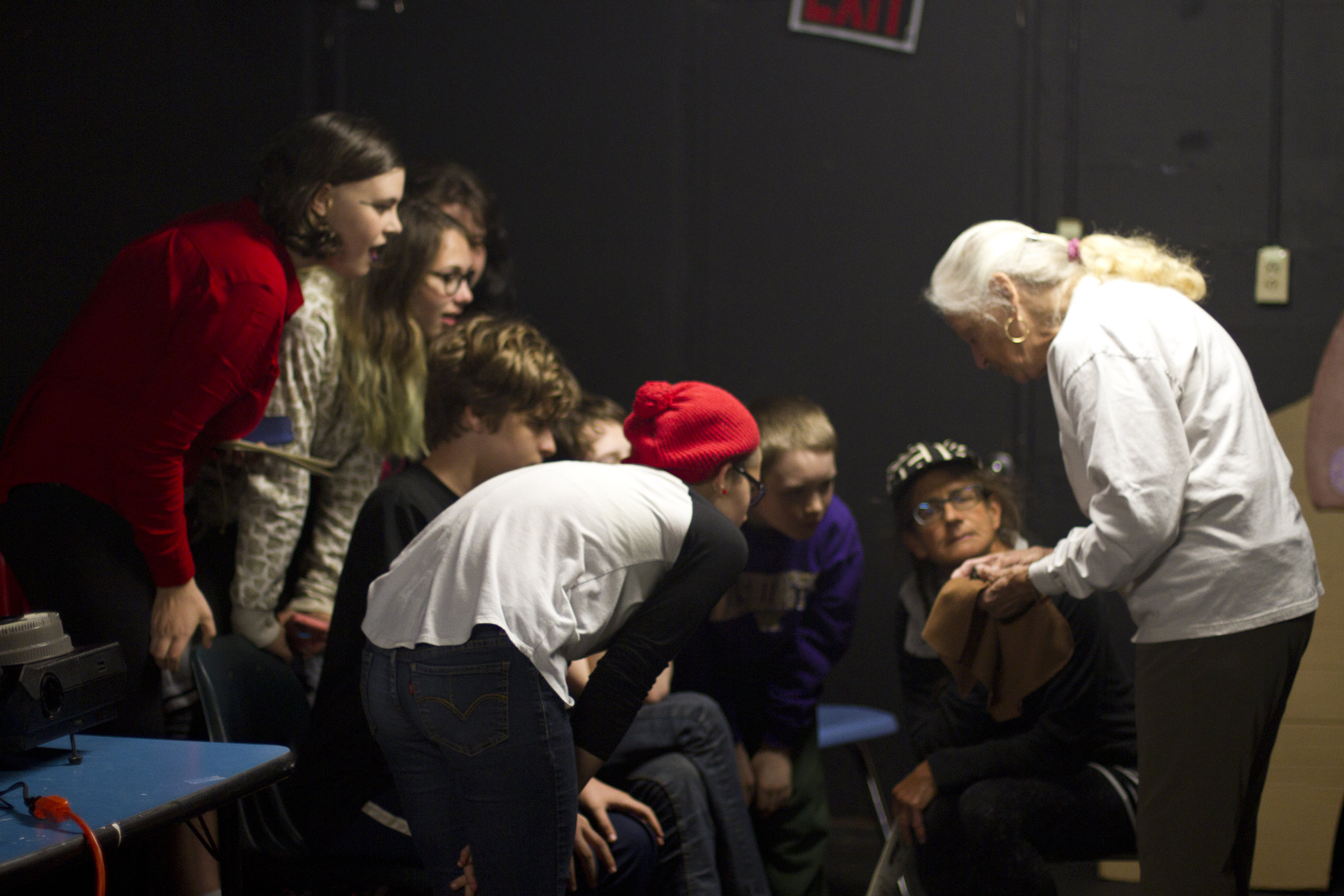Structure within freedom.
Freedom within structure.
Freedom and Responsibility
Freedom is an essential ingredient in Clearwater's education model. Clearwater students face the challenge of balancing individual freedoms with the needs of their community as a whole. The structures within the school protect these freedoms by defining community norms and holding students and staff accountable.
Mediation
Individuals often use mediation as an immediate way to address conflict. Clearwater staff and students draw from a range of facilitation techniques that provide the people involved in conflicts a chance to be heard. This results in increased understanding of different perspectives and creative solutions to problems.
School Meeting
The School Meeting meets weekly to create rules and policies that support individual responsibility and mutual respect at school. Each student and staff member has an equal opportunity to discuss, debate, and vote on all decisions that affect the community. Other schools provide debate teams or student councils, but Clearwater gives students direct authority to govern their community and daily lives.
School Meeting decisions range from immediate problem solving to long-term planning, such as authorizing the purchase of new materials, determining community norms, and planning events. In general the rules emphasize respect for others, safe behavior, and respect for shared spaces — the central issues of all democratic societies.
Justice and Compassion Committee
The Justice and Compassion Committee (known as J.C.) is a student led committee that meets daily to address conflict at school. The J.C. mission statement is “to support School Meeting members in addressing conflict with compassion, respect, and equity, and to provide School Meeting members with tools for change and growth.”
When a “case” is written up, J.C. collaborates with the students involved to create solutions that address their needs and the needs of the school as a whole. J.C. responses to conflict pull from many different modalities such as transformative and restorative justice, conflict resolution, conflict mediation, circle practice and more.
School Rules
Our rulebook is made by School Meeting and is constantly changing and evolving. An iteration of our school rules is available here to provide an example of the rules and values that Clearwater upholds. School rules apply equally to all school meeting members (students and staff).
Students and staff
Students
The role of Clearwater students is to take responsibility for their lives. At Clearwater learning is an active and continuous process that isn't limited to class-time or separate from everyday life. Clearwater students may spend their days building forts, playing music, reading books, or playing video games, as long as they follow the school's rules. Students are held accountable for their actions by their community, thus allowing freedom to be experienced so long as their actions don't inflict upon other's freedoms. This community rapport helps students learn how to meet the expectations of their community and how to set high expectations for themselves.
Staff
The adults at school are called staff, a title used to distinguish the role adults play at Clearwater from the role of traditional teachers. Staff are hired and fired by the School Meeting—making them directly accountable to Clearwater's students. Staff work to keep the school running smoothly, prioritize safety, and are a resource for students. Staff members never tell students how they should spend their time, instead they play, encourage, and learn alongside students.
How students and staff relate
Staff and students are continually engaged in genuine relationships with each other—as mentors, teachers and friends. Students and staff members play cards, read aloud, or sew together. The options are unlimited. Students have the opportunity to work with staff on all school projects, learning new skills as varied as policy making, gardening, and painting walls. People of all ages treat each other with an openness that defies most cultural norms. Conversations on any imaginable topic take place daily. Long-lasting friendships are forged between students and staff of all ages.
Graduating from Clearwater
Clearwater's model works because students take primary responsibility for their education and their school environment. Each day, students make decisions about how to spend their time, how to reach their goals, and how to get along with other members of the community. Through this process, they gain skills that are essential in the workplace, family, and society. Students graduate prepared to take on the challenges they will face throughout their adult lives.
Diploma Process
Clearwater students leave school ready to continue their education, pursue their careers, work or live in community, and be happy. Most students choose to complete a high school diploma as a final step of closure of their Clearwater education.
Clearwater offers a Washington State high school diploma to students who demonstrate that they have prepared themselves to assume adult responsibilities in the greater community. Diploma candidates engage in a year-long process, creating and meeting regularly with a Diploma Committee comprised of staff members and students. Committee members act as mentors, advisors, and friends, as each candidate creates and carries out a self-defined diploma project.
At the end of the year, candidates can choose to present their projects to the school community. Past candidates have written papers, given performances, created artworks, produced movies, and made video games. These projects honor the accomplishments of the students and demonstrate their readiness for graduation.
